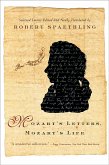Ludwig van Beethoven (17701827), the protagonist of freedom for music, disentangled music from the control of the ruling class. In publishing his music and writing for the rising classes, Beethoven claimed freedom and expressed the emotions of the new rulers, the artists. The Eroica, Fidelio, and the piano works express the emotions of the new rulers the intense love, the need for companionship of people, the forces that conspired to defeat the artist, and the strength and superiority of the artist in overcoming the weaknesses. The letters of Beethoven are the principal nonmusical expression of his personality in its relationship with the world of his time.
In what he called the "dry letters of the alphabet," Beethoven depicted his fears, his loves, and his friendly relations: his fears of deafness and of corrupted texts by pirating printers; his loves, Bettina Brentano and Giulietta Guicciardi; and his friendly relations with Baron Zmeskall, Frau Nannette Streicher, and the music publishers Steiner and Company. He praises the poetry of Goethe and Schiller but condemns Goethe for his obeisance toward royalty. He solicits help during his perpetual trouble with his health and with his servants. He castigates publishers, sets prices for his works, and calculates letters of dedication. He expresses his love for his nephew, Carl, but documents the trouble that Carl was causing him by taking up his precious time. And although Beethoven liked to decorate the letters with musical openings and closings and an occasional song to the receiver, he increasingly signed his letters, "In haste."
The 457 letters collected here are the most important of the letters of the spirit that was to shape and move a century. Explanatory notes comment upon works, on persons mentioned, and on the puns of which Beethoven was fond. The letters chronicle his business, his needs, his humor and bitterness, and his philosophy. They will give many insights into Beethoven's methods, his influences, his moods, and the conditions under which the master worked.
Dieser Download kann aus rechtlichen Gründen nur mit Rechnungsadresse in A, D ausgeliefert werden.
Es gelten unsere Allgemeinen Geschäftsbedingungen: www.buecher.de/agb
Impressum
www.buecher.de ist ein Internetauftritt der buecher.de internetstores GmbH
Geschäftsführung: Monica Sawhney | Roland Kölbl | Günter Hilger
Sitz der Gesellschaft: Batheyer Straße 115 - 117, 58099 Hagen
Postanschrift: Bürgermeister-Wegele-Str. 12, 86167 Augsburg
Amtsgericht Hagen HRB 13257
Steuernummer: 321/5800/1497
USt-IdNr: DE450055826
Bitte wählen Sie Ihr Anliegen aus.
Rechnungen
Retourenschein anfordern
Bestellstatus
Storno









